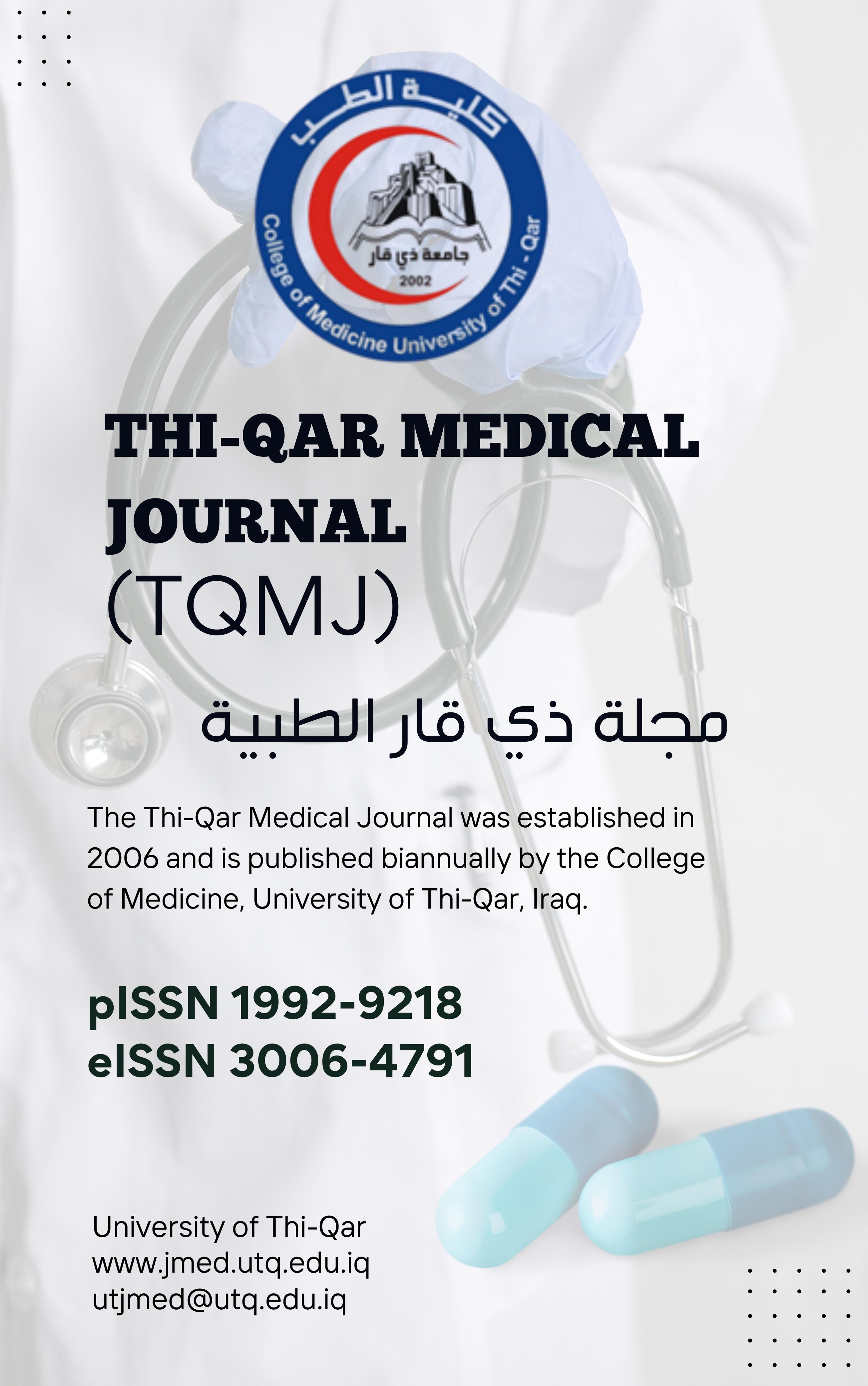Ethical Approval for Studies Involving Human and Animal Participants
Ethical Approval for Studies Involving Human Participants
Ethical approval for studies involving human participants is essential to ensure the integrity, validity, and ethical conduct of research. At the University of Thi-Qar Journal of Medicine , we are committed to upholding the highest ethical standards and promoting responsible research practices in the field of University of Thi-Qar Journal of Medicine .
Ethical Approval Policy
At the University of Thi-Qar Journal of Medicine , we prioritize the ethical treatment of human participants in all research studies published within our journal. Ethical approval ensures that research involving human participants is conducted with integrity, respect, and consideration for the rights and well-being of individuals involved. To uphold these principles, we have established the following policies and guidelines for obtaining ethical approval:
- Ethical Review Process:
- All research studies involving human participants submitted to University of Thi-Qar Journal of Medicine must have obtained ethical approval from a recognized institutional review board (IRB) or ethics committee.
- Researchers are required to provide documentation of ethical approval along with their manuscript submission. This documentation should clearly outline the ethical considerations, procedures, and safeguards implemented to protect the rights and welfare of participants.
- Informed Consent:
- Researchers must ensure that informed consent is obtained from all human participants involved in the study.
- Informed consent forms should clearly explain the purpose of the study, procedures involved, potential risks and benefits, confidentiality measures, and participants' rights.
- Participants must have the opportunity to ask questions and provide voluntary consent without coercion or undue influence.
- Confidentiality and Privacy:
- Researchers must uphold the confidentiality and privacy of human participants by ensuring that all personal information is handled securely and anonymously.
- Data collection, storage, and sharing practices should be in compliance with relevant data protection regulations and ethical standards.
- Minimization of Risks:
- Researchers are responsible for minimizing risks to human participants throughout the research process.
- Any potential risks to participants' physical, psychological, or emotional well-being must be identified and mitigated appropriately.
- Respect for Participant Autonomy:
- Researchers must respect the autonomy and dignity of human participants by allowing them to make informed decisions about their involvement in the study.
- Participants should have the right to withdraw from the study at any time without facing consequences.
- Reporting of Ethical Considerations:
- Authors are required to clearly report ethical considerations and procedures in their manuscript, including details of ethical approval, informed consent procedures, and measures taken to protect participants' rights.
- Any ethical issues or concerns that arise during the course of the study should be addressed and reported transparently.
- Compliance with Ethical Standards:
- Researchers must adhere to relevant ethical guidelines and standards, such as the Declaration of Helsinki and applicable national and international regulations.
- Non-compliance with ethical standards may result in rejection of the manuscript or retraction of published articles.
Ethical Approval for Studies Involving Animal Participants
Ethical approval for studies involving animal participants is essential to uphold the principles of scientific integrity and animal welfare. By adhering to rigorous ethical standards and obtaining proper approval, researchers contribute to the advancement of biomedical and biochemical knowledge while respecting the rights and well-being of animal participants.
Policy: All studies involving animal participants submitted to University of Thi-Qar Journal of Medicine must have received ethical approval from an accredited Institutional Animal Care and Use Committee (IACUC) or an equivalent regulatory body. Ethical approval ensures that the welfare and rights of animals are protected throughout the research process.
Procedures for Ethical Approval: Researchers must follow these procedures to obtain ethical approval for studies involving animal participants:
-
Protocol Submission: Researchers must submit a detailed protocol outlining the purpose, methods, and expected outcomes of the study to the appropriate ethics committee.
-
Animal Welfare Considerations: The protocol must include detailed information on how the welfare of animals will be safeguarded throughout the study, including housing conditions, feeding protocols, veterinary care, and measures to minimize pain and distress.
-
Justification for Animal Use: Researchers must provide a clear justification for the use of animals in the study, demonstrating that the research aims cannot be achieved through alternative methods and that the benefits of the research outweigh any potential harm to the animals.
-
Species and Numbers: Researchers must specify the species of animals to be used in the study and justify the number of animals required to achieve statistically significant results while minimizing the overall number of animals used.
-
Training and Qualifications: Researchers and personnel involved in animal care and experimentation must have appropriate training and qualifications to ensure competent and humane treatment of animals.
-
Ethical Review Process: The submitted protocol will undergo a thorough ethical review by the IACUC or equivalent regulatory body, consisting of experts in animal welfare, veterinary science, and relevant scientific disciplines.
-
Approval Criteria: Ethical approval will be granted based on compliance with established ethical guidelines, scientific validity, and consideration of the 3Rs principle (Replacement, Reduction, Refinement) for animal research.
-
Modifications and Amendments: Researchers must obtain approval for any modifications or amendments to the approved protocol before implementing changes to the study.
-
Annual Review: Ethical approval for long-term studies involving animal participants will be subject to an annual review to ensure ongoing compliance with ethical standards and welfare considerations.




